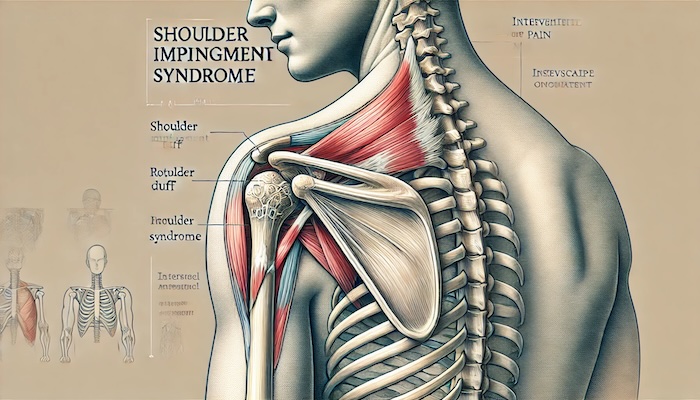
Shoulder impingement syndrome, also known as swimmer’s shoulder, occurs when the rotator cuff tendons become compressed between the shoulder bones, often due to repetitive overhead motions or aging-related wear and tear. This condition leads to pain, reduced mobility, and difficulty performing daily tasks. At Precision Pain Care and Rehabilitation, comprehensive care options, including interventional pain management, aim to relieve symptoms and restore function.
Causes and Symptoms
Shoulder impingement can result from repetitive activities, inflammation, or injuries to the rotator cuff. Common symptoms include:
- Dull or sharp pain during arm movements.
- Difficulty lifting objects or reaching overhead.
- Pain that worsens at night, disrupting sleep.
Diagnostic and Treatment Approaches
Accurate diagnosis involves a clinical evaluation, imaging studies, and sometimes diagnostic injections. Treatment strategies depend on the severity of symptoms and underlying causes.
- Conservative Care
- Physical Therapy: Restores strength and mobility, using targeted exercises like pendulum stretches and external rotations.
- Medications: Over-the-counter anti-inflammatories can reduce pain and swelling.
- Lifestyle Modifications: Avoiding activities that aggravate symptoms.
- Interventional Pain Management
- Corticosteroid Injections: These injections combine a steroid and a numbing agent to alleviate inflammation and pain, providing relief that can last for months. They are often paired with physical therapy to enhance recovery.
- Platelet-rich plasma (PRP) Therapy: Utilizes the patient's blood components to accelerate healing.
- Stem Cell Therapy: Promotes tissue repair and may delay or eliminate the need for surgery in severe cases.
- Surgical Options: In refractory cases, arthroscopic surgery may be considered to create more space in the shoulder joint.
Benefits of Interventional Pain Management
Interventional techniques such as corticosteroid injections and PRP therapy are minimally invasive options that reduce inflammation, provide pain relief, and enhance the effectiveness of rehabilitative exercises. These methods are precious for patients not responding to conservative measures but not yet requiring surgery.
Preventive Tips
- Maintain proper posture and shoulder mechanics.
- Gradually increase the intensity of activities involving the shoulder.
- Incorporate regular stretching and strengthening exercises.
At Precision Pain Care and Rehabilitation, patients benefit from state-of-the-art diagnostic tools and treatments tailored to their unique needs.
Precision Pain Care and Rehabilitation has two convenient locations in Richmond Hill – Queens, and New Hyde Park – Long Island. Call the Queens office at (718) 215-1888 or (516) 419-4480 for the Long Island office to arrange an appointment with our Interventional Pain Management Specialists, Dr. Jeffrey Chacko or Dr. Sonny Ahluwalia.















